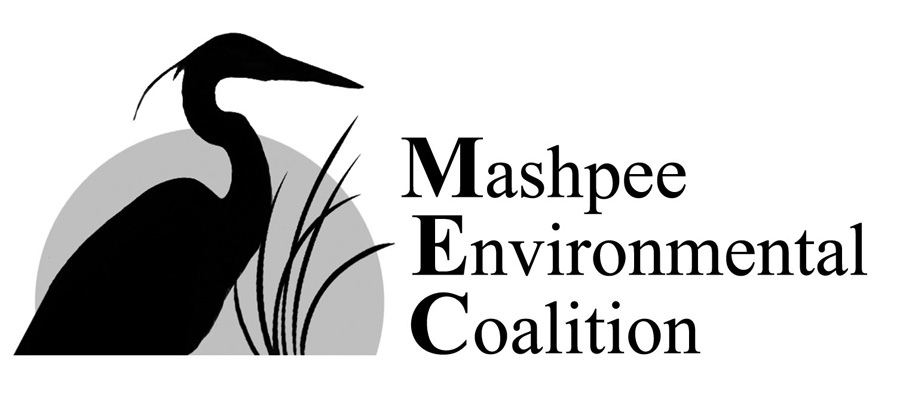by MEC | Mar 10, 2023 | Initiatives, Scholarship
PRESS RELEASE: March 2023
The Mashpee Environmental Coalition (MEC) is pleased to announce that a scholarship will again be awarded this year to one or more qualified Mashpee High School seniors. The MEC Scholarship is designed to encourage students who are dedicated to the environment, and who plan to continue their education at a higher education institution. Since the scholarship began in May 2020, thus far five scholarships have been awarded to deserving students.
by MEC | Sep 10, 2020 | Enviromental Data, Initiatives
The Mashpee Environmental Coalition board voted this month to review and expand its website, so more recent town initiatives and assets are highlighted — including Mashpee’s Pollinator Gardens, the Herring and Shellfish Programs, Mashpee Community Garden, Mashpee National Wildlife Refuge, Mashpee Community Park and Veterans Garden, and the Mashpee Environmental Coalition scholarship. With an aim at finding new ways to collaborate, information about local, like-minded organizations will also be expanded to include groups such as Mashpee Clean Waters, Save Popponesset Bay, Citizens for the Protection of Waquoit Bay, and Friends of the Mashpee National Wildlife Refuge.
by MEC | Jan 8, 2020 | Initiatives, Scholarship
PRESS RELEASE November 2019
The Mashpee Environmental Coalition is pleased to announce a new scholarship starting Spring 2020 in support of future environmental leaders. All Mashpee seniors are eligible to apply who attend the Mashpee Middle-High School and who plan to continue their studies full-time at an institution of higher education immediately after high school.
Preference will be given to candidates who are active members of the Mashpee Middle-High School Environmental Club; demonstrated leaders in environmental issues; or students who plan to continue their education with a focus on the environment.
To apply, seniors must complete the Mashpee High School Scholarship Application by the deadline listed on the Mashpee Middle-High School scholarship webpage under “Local Scholarships”. Additional scholarship requirements and details may be found on that site. Scholarship donations may be sent to Mashpee Environmental Coalition, PO Box 274, Mashpee, MA 02649.
by MEC | Jan 8, 2020 | Current Topics
An Article by Barbara Adner, Past Director and Member at Large of MEC – Published August 2017
I first became aware of the importance of bees when our son, Adam, agreed to house two beehives for a beekeeper. He lives behind a flower nursery where the bees had an abundant choice of flower pollen.
Very interesting, I thought. It got even more interesting when one day I opened the trash can and found bees in it. There were hoards of them and they were on the move over and under and inside the trash bags. It happened while Adam, the bee lover, was visiting, and he found a beekeeper who would relocate the bees for $150. My choices were to spend $150 and have the bees taken to another location, leave the lid open and hope they would fly away (they did, but returned) or leave them to their fate in the never-never land where trash is dumped. I would like to say I did the former but, truth be told, I did the latter and have worried about those bees ever since.
Much has been written about the loss of bees to pollinate plants. Butterflies, birds, bats, flies, and moths are also pollinators. As their habitats are destroyed by converting wild lands to domestic use, and as the pesticides poison the pollinators, the human food chain is diminished. Some of our agriculture is now pollinated through the aid of beekeepers who transport their beehives from crop to crop, since there are no longer enough bees and other creatures to pollinate the plants.
(more…)
by Virginia Scharfenberg | Mar 31, 2015 | Ecological Lawn Care, Waste Water
After overwhelming approval at Town Meeting, unanimous approval by the Cape Cod Commission and approval by the Attorney General, the Town of Mashpee has now added lawn fertilizer regulations to the Town Code. These regulations strongly recommend that only one to two pounds of nitrogen be applied per 1,000 square feet of lawn area. Phosphorus in lawn fertilizers should only be applied on new lawns or lawns where a soil test indicates a real need.
This Nitrogen Control Bylaw, Chapter 107 of the Town Code, as initially passed, includes the following performance standards that anyone who fertilizes their lawn areas must abide by: (more…)
by MEC | Jul 29, 2014 | Current Topics, Enviromental Data
In 2003 the Mashpee Environmental Coalition introduced the “Pond Health Program” with volunteer water samplers measuring and recording water column parameters in each of Mashpee’s six major ponds with public access. Collected data was made available to the scientific and local communities. Below are data collected between 2000 and 2013.
Mashpee’s Department of Natural Resources has since taken over the collection of water samples from Mashpee’s waterways.
